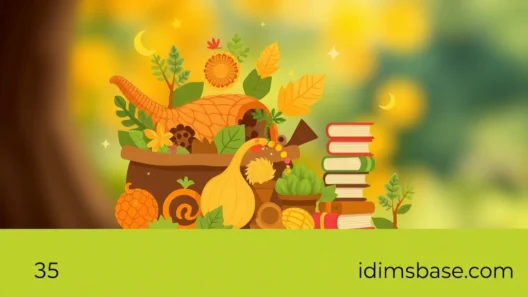Time, oh time! It's a funny thing, isn't it? One moment you're watching the clock tick by agonizingly slowly, waiting for a special event, and the next, years have simply vanished in a blink. We all experience time, but the way we talk about it, the vivid images we use to describe its passage, that's where the magic of language truly shines! If you've ever found yourself searching for just the right phrase to capture how quickly (or slowly!) minutes, hours, or even decades seem to glide by, you're in for a treat.
Idioms are like little linguistic snapshots, capturing complex ideas in simple, memorable phrases. And when it comes to time, English is absolutely bursting with them! These expressions don't just make our conversations more colorful; they also give us a deeper understanding of how different cultures perceive and interact with the flow of existence. So, buckle up, because we're about to embark on a delightful journey through 35 incredible idioms about time passing. You'll be a time-telling wordsmith by the end of this!
The Swift Passage of Time: When Time Flies!
Ever felt like time just sprint past you? These idioms are perfect for those moments when you wish you had a pause button!
- Time flies (when you're having fun): This one is probably the most common, and for good reason! It perfectly describes how quickly time seems to pass when you're enjoying yourself. Think of that amazing vacation or a fantastic party – poof, it's over!
- In the blink of an eye: Imagine how fast you can blink. That's how quickly something happens or passes. It emphasizes extreme speed.
- In a flash: Similar to "in the blink of an eye," this suggests something happening almost instantaneously, like a camera flash.
- In no time (at all): This means something will happen very quickly or without delay. "Don't worry, we'll be there in no time!"
- Before you know it: This phrase implies that something will happen so fast, you won't even realize it until it's already occurred.
- Like a whirlwind: A whirlwind is fast and chaotic. This idiom describes a period of time or an event that passes very quickly and intensely.
- Time marches on: This isn't just about speed, but about the unstoppable, continuous progression of time, regardless of what's happening.
- The sands of time (are running out): A beautiful, poetic image of an hourglass. It means time is passing, often implying a limited amount of time remaining.
- Time waits for no man: This powerful idiom means that time continues to pass, and opportunities or life events won't stop for anyone. You have to keep up!
- A fleeting moment/glance/thought: "Fleeting" suggests something that passes very quickly, lasting only for a brief instant.
- Gone in a flash/puff of smoke: These emphasize something disappearing or ending extremely quickly and unexpectedly.
- The clock is ticking: This idiom highlights that time is passing and often implies urgency, suggesting you need to act soon.
The Slow Crawl of Time: When Time Drags!
On the flip side, sometimes time feels like it's moving at a snail's pace. Think about waiting for test results or the end of a long meeting!
- Time drags (on): The direct opposite of "time flies." This means time seems to pass very slowly, usually because you're bored, impatient, or unhappy.
- At a snail's pace: Snails are notoriously slow! This idiom means something is happening extremely slowly.
- Like watching paint dry: Is there anything more boring than watching paint dry? This idiom describes something incredibly tedious and slow.
- The days crawl by: Similar to "time drags," this emphasizes the slow, arduous passage of individual days.
- An eternity: While not literally forever, this idiom is used hyperbolically to describe a period of time that feels incredibly long.
- Ages ago/for ages: This means a very long time ago, or for a very long duration. "I haven't seen her for ages!"
- Slow as molasses: Molasses is thick and sticky, pouring very slowly. This idiom perfectly describes something moving or progressing at a sluggish speed.
The Inevitable Passage of Time: Embracing the Flow
These idioms speak to the certainty of time's movement, often with a sense of acceptance or recognition of change.

- Time and tide wait for no man: An older, more formal version of "time waits for no man," emphasizing that natural forces (like tides) and time are unstoppable.
- The inexorable march of time: "Inexorable" means impossible to stop or prevent. This phrase paints a picture of time moving forward relentlessly.
- With the passage of time: A more formal way of saying "as time goes by." It suggests that things change or develop over a period.
- Time will tell: This idiom means that the truth or outcome of something will only become clear in the future, as more time passes.
- The sands of time run low/out: This signifies that the allotted time for something is nearing its end or has completely expired.
- To buy time: This means to do something to delay an event or decision, usually to gain more time to prepare or think.
- To kill time: This means to do something to pass the time while waiting for something else, usually something not very productive.
- To make up for lost time: This means to work extra hard or do more than usual to compensate for a period when you didn't do enough.
- To turn back the hands of time: A common, almost wistful idiom expressing the desire to go back to a past moment or undo something.
- Time is of the essence: This means that speed is very important; there is an urgent need to do something quickly.
- Ahead of its time: Describes something that is very innovative or advanced, so much so that people in its own era might not fully appreciate it.
- Behind the times: The opposite of "ahead of its time," describing something or someone that is old-fashioned or not up-to-date.
- To stand the test of time: This means something has proven to be durable, effective, or valuable over a long period.
- A blast from the past: Refers to something or someone that suddenly reminds you strongly of an earlier time.
- In the nick of time: This means at the last possible moment, just before it's too late.
- Against the clock: This means working very quickly because there is a limited amount of time.
Frequently Asked Questions About Time Idioms
You've got questions about these fascinating phrases, and we've got answers! Let's dive into some common queries.
Q1: Why are there so many idioms about time?
A1: That's a fantastic question! Time is a universal concept that affects everyone, everywhere. It's a fundamental part of our lives, influencing everything from daily routines to major life events. Because it's so central to human experience, people naturally develop many ways to describe its passage, its effects, and their feelings about it. Idioms are a creative and concise way to express these complex ideas and observations. Plus, they often draw on common experiences or metaphors (like sand in an hourglass or a ticking clock), making them relatable and memorable.

Q2: How can I remember all these idioms?
A2: Great question! Trying to memorize them all at once can feel overwhelming. Here are a few tips to help them stick:
- Context is Key: Don't just learn the definition; try to understand the situation in which you would use the idiom. For example, "time flies" is for when you're having fun!
- Visualize: Many idioms create a strong mental image (like watching paint dry or a snail's pace). Try to picture it in your mind.
- Use Them! The best way to learn is by doing. Try to incorporate one or two new idioms into your conversations or writing each week. Don't be afraid to make mistakes; that's part of learning!
- Group Them: Notice how we grouped them here (fast, slow, inevitable)? Grouping by theme can help your brain organize the information.
- Flashcards or Apps: If you're a visual learner, flashcards (physical or digital) can be very effective.
Q3: Are these idioms used in formal or informal settings?
A3: Most of the idioms about time passing are generally used in informal to semi-formal settings. They're perfect for everyday conversations, casual writing, and even some journalistic pieces. However, you'd typically avoid them in very formal academic papers, legal documents, or highly technical reports, where precise and literal language is preferred. Phrases like "time marches on" or "the inexorable march of time" can be slightly more formal or poetic, but still generally fall outside strict academic discourse.

Q4: Do other languages have similar idioms about time?
A4: Absolutely! While the exact phrases will differ, the concept of time passing, and the human desire to express its speed or inevitability, is universal. Many languages have their own unique and beautiful idioms for "time flies" or "time drags." For instance, in Spanish, you might say "el tiempo vuela" (time flies), or in German, "die Zeit vergeht wie im Flug" (time passes like in flight). Exploring these cross-cultural similarities and differences is one of the most fascinating aspects of language learning!
Q5: Can using idioms improve my English fluency?
A5: Yes, definitely! Using idioms makes your English sound more natural and native-like. It shows that you have a deeper understanding of the language beyond just literal translations. Native speakers use idioms all the time, so understanding them helps you comprehend nuanced conversations, and using them helps you express yourself more vividly and authentically. It's a sign of advanced fluency and adds a wonderful layer of richness to your communication.
Key Takeaways: Mastering Time's Language
Wow, what a journey through the fascinating world of time idioms! We've seen how language beautifully captures our ever-changing perceptions of minutes, hours, and years.
Here are the key takeaways from our exploration:
- Time's Many Faces: We use different idioms to describe if time feels fast (e.g., "time flies," "in the blink of an eye"), slow (e.g., "time drags," "at a snail's pace"), or simply inevitable (e.g., "time marches on," "time will tell").
- Vivid Imagery: Many idioms create strong mental pictures, helping us understand and remember their meaning (e.g., "sands of time," "watching paint dry").
- Cultural Reflections: These idioms reflect how people perceive and interact with time, often highlighting urgency, patience, or the desire to revisit the past.
- Enhance Your English: Incorporating idioms makes your English sound more natural, expressive, and fluent. It's a sign of a rich vocabulary and a deeper understanding of the language's nuances.
- Practice Makes Perfect: The best way to master these idioms is by actively using them in your conversations and writing. Don't be afraid to experiment!
So, the next time you're chatting with a friend, writing an email, or simply reflecting on your day, try to sprinkle in a few of these wonderful idioms. You'll not only sound more like a native speaker, but you'll also find a new, more colorful way to express the universal experience of time passing. Remember, "time is of the essence" when it comes to learning, so start practicing today!






